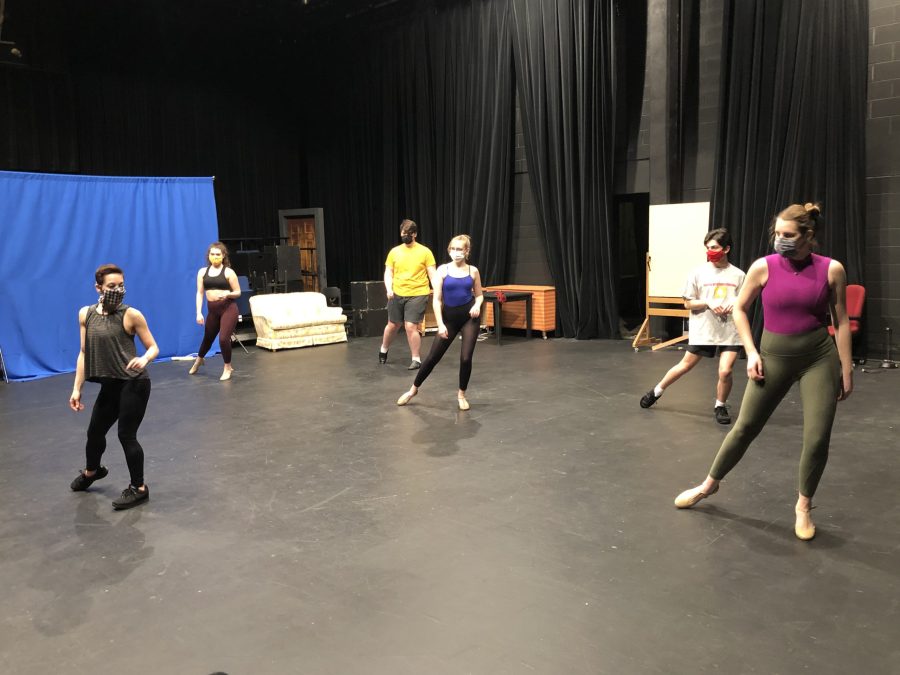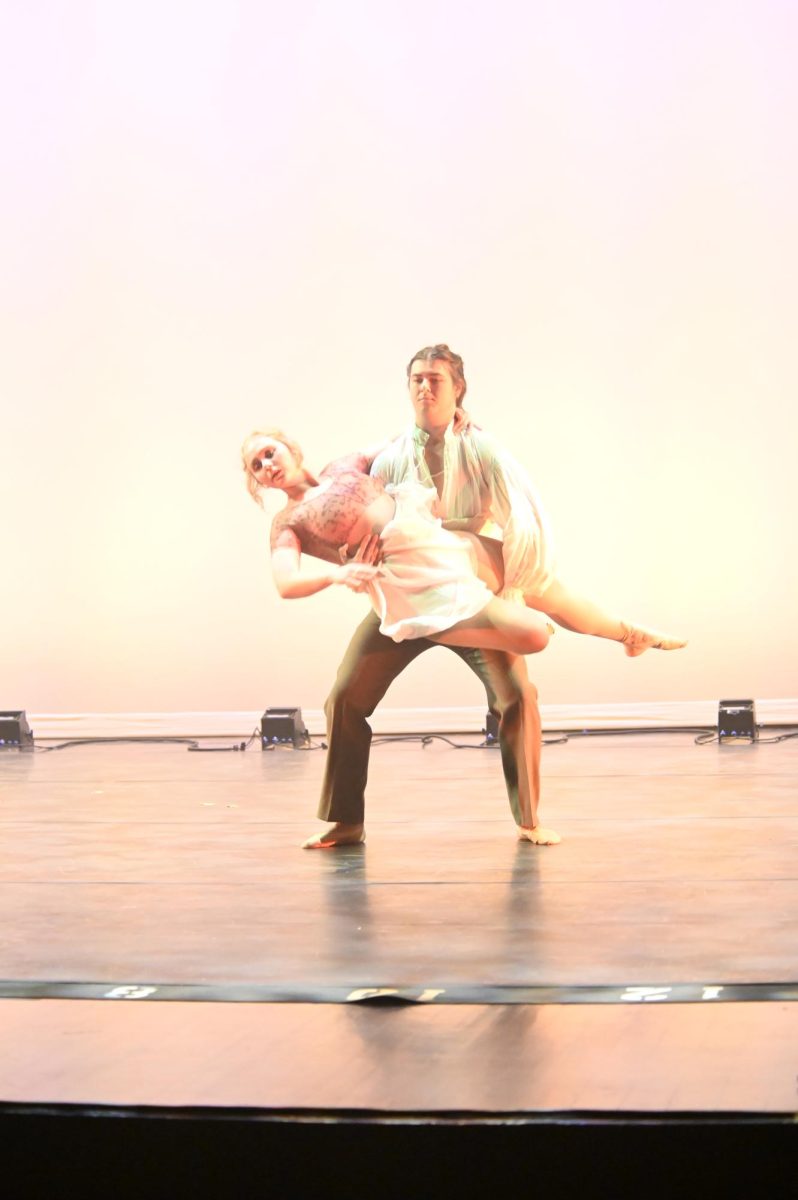It has been a full semester since the announcement that Matthew Scott Campbell, professor of theatre, was leaving Viterbo University. Though the announcement came as a shock to students, even more shocking was that Campbell was to be replaced by not one, but five new instructors.
Campbell, after accepting a position at a New York theatre, left with a heavy heart in the final week of fall semester. Months before that time, department faculty had cultivated the idea of inviting actively working professionals, out of work during the pandemic, to share their knowledge with Viterbo’s performance students.
Thus, Arbender Robinson, Alison Solomon, Rebekah Stasinopoulos, Josiah Laubenstein, and Tammy Addleman have all found their way to Viterbo. Their presence and expansive knowledge of the theatre industry, greatly welcomed by students, has more than filled the void left by Campbell.
“We definitely all miss Matt Campbell’s energy,” stated Erin Jerozal, department head and professor of theatre, “but we thought, well, ‘What a great opportunity during Covid’–when so many amazing, usually booked, Broadway professionals might be available.”
Jerozal told the Lumen that the process of inviting these visiting instructors “wasn’t easy, but what made it easier was that it was fun.” She said, “It was fun to think about who we get to share this space with this semester both for us as educators but also in thinking about new opportunities for students.”
Robinson, a working actor on Broadway, is all too familiar with Viterbo’s campus: he used to walk Viterbo’s halls as a Theatre student. Robinson, now an active alumni and member of the Board of Trustees, stated that though he did not have the best experience as a student himself, he is happy to be back. He is especially excited for the students “to see someone who was in their exact same position at one time be successful enough to be asked to come back and teach.”
The 1998 graduate celebrates his return to Viterbo, noting a bit of déjà vu. “Transitioning back was interesting,” explained Robinson, “There are some hallways and corridors that look exactly the same—they are very comforting and familiar to me; they make me feel like a student again. But then I turn the corner to a brand-new area and I just stop and think, ‘Holy smokes, I have come full circle.’”
Solomon, Broadway performer, dancer, choreographer, and associate director, on the other hand, had never set foot on Viterbo’s campus before teaching. However, she told the Lumen that it didn’t take long to settle in. “It is nice that it’s a small campus,” she notes; “I don’t feel overwhelmed, and I feel I know where to go.”
Solomon admitted that she felt it odd that she was given such trust as a guest instructor. “I don’t know if this is the norm,” she said, “but there was this part of me that expected that I would be watched, maybe, or to have people checking in to make sure I was doing my job.”
This sense of uncertainty was whisked away quickly once Solomon received positive responses from students from what she has to offer. “Everyone feels very engaged and interested,” Solomon stated, “[they enjoy that] I bring a side that students maybe don’t get to experience. I understand what is like to be them, but also what it is like to hire them.”
A few of these Music Theatre students, interviewed by the Lumen, were Bri Reilly, a second year, and Payton Seacrist, a first year. In conducting these interviews, excitement for the new instructors was restated, but also the wounds left by Campbell’s departure.
“It definitely had a big impact on our class,” stated Reilly, “Matt is the reason I am here; I auditioned with him. I was super excited to do a show with him—though it got cancelled.”
Seacrist, in a similar vein, expressed her frustration. “Working with Matt was really great; I loved him,” noting, “It is hard to know also that [Laubenstein] will also not be staying. I feel like I am learning a lot, but it’s hard to form strong connections with faculty who you know are going away.”
Just as Jerozal stated, the lack of Campbell’s energy is felt by all, including these students. However, that does not stop either of them from enjoying this unique opportunity.
“I have been working with [Stasinopoulos],” stated Reilly, “She is a stage manager, she has worked at many theaters and I think some circus shows too—which I think is awesome.”
Reilly told the Lumen that her favorite quality of Stasinopoulos is that “She brings such a passion for what she does into the classroom. Seeing theatre through her career as a stage manager has given me a whole new appreciation for theatre in general.”
Seacrist, who studies under Laubenstein, an accomplished actor, also expressed atomicity toward her instructor. “He’s super, super, funny,” she said; “He’s light-hearted and fun to work with—I don’t feel intimidated by him and that I can give him my best and receive honest feedback.”
It is clear the absence of Campbell is still felt all across campus; however, the presence of these talented instructors has offered students an opportunity they may have not received otherwise—a sort of a silver lining. Seacrist said it best when she noted that “a good part is I know I might, one day, have future experiences with these people after they leave, and I know they’re going to be great.”


